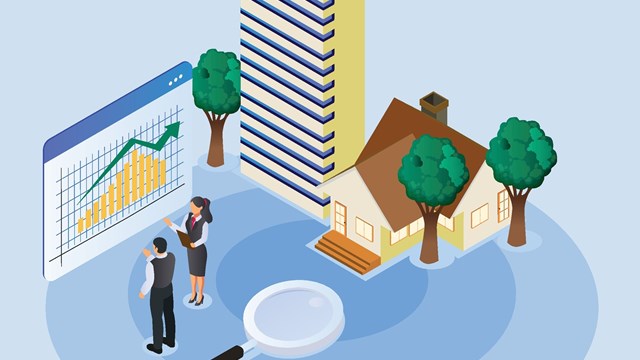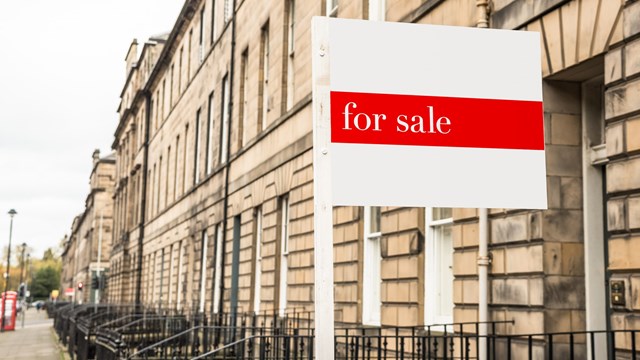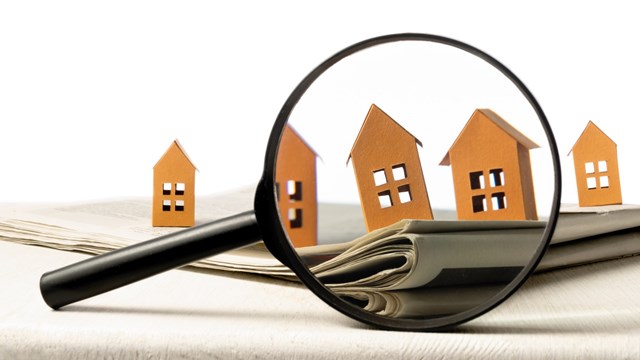
The boards of some co-op and condo buildings pride themselves on not raising their monthly maintenance fees for years at a time. At first glance, this might seem like a good thing—after all, low fees are appreciated by residents and can be attractive to potential buyers.
Keeping fees artificially low can lead to problems down the road, however. Stubbornly maintaining low fees can deplete a building’s capital reserve fund, leaving little cash on hand when a major maintenance need arises. And should such a need arise, a building may have no choice but to vote for a much larger fee increase, or worse, charge a special assessment that could be devastating to residents’ finances.
With smart budgeting though, a building’s board can plan for future projects by maintaining an appropriate monthly fee, and increasing it when needed. Boards and managers should adopt a reasonable, structured approach to raising fees. Such an approach can be devised with the help of financial consultants, who will guide a board in considering all of the relevant factors before increasing fees.
Why the Fee?
A building doesn’t run on the goodwill of its inhabitants, but on the fees that they pay to keep the place functional and well maintained. Depending on the size of the building, the skills of a handful of folks—or more than a handful—may be required to run it. The cost of employing those people is just one of the factors that determine a resident’s monthly maintenance fee.
Generally, a board devises a budget for their building based on the building’s normal operating expenses; major capital improvements; contingencies, such as unusual expenses due to foul weather conditions; and occasional extraordinary costs, such as back taxes that are owed by the building.
The normal operating expenses for a building usually includes all maintenance costs, like the doorman and superintendent’s salaries, and the fees of outside contractors, such as landscapers, painters, house cleaners and snow removal crews. Other building expenses usually include the costs associated with having a property manager, and the costs associated with employing the services of an attorney, an accountant, and occasionally, an engineer or architect. Taxes and insurance costs also figure into the final tally.
In a condo, there usually isn’t an underlying mortgage, and the owner pays his own real estate taxes. But if the condo board is faced with a need for cash reserves for maintenance, borrowing or raising maintenance charges are its two main options, says Gerald Marsden, a partner with financial consultants Eisner & Lubin in Manhattan.
“The question is whether to charge owners, or borrow some money,” Marsden says. “Sometimes, it’s difficult for people to pay increases.” Money that is borrowed must be paid back, and the debt of a building can have an effect on the salability of the units in the building, he adds.
According to Marsden, associations get themselves into trouble when they don’t plan, especially for capital improvements or regular maintenance. “It’s important to put aside money to do repairs on a planned basis, rather than waiting until something breaks, and having a special assessment. A well-run building has a maintenance charge that includes a fee to be put toward the capital reserve,” he says.
By building up a healthy capital reserve fund, a management team prepares for the rainy day when the money will be needed. So, when an especially fierce ice storm puts a hole in a roof, or an excessively windy few days come along and tear apart a canopy, the building’s management has the funds to pay for the repair.
When to Raise Fees
Knowing when to increase fees, and by how much, is an essential part of developing a budget for a building. Many experts recommend that a building’s board regularly raise fees, regardless of whether or not operating expenses are increasing. Others say a more measured approach is needed.
Gary Rosen, a CPA with the accounting firm of Wilkin & Guttenplan PC of East Brunswick, New Jersey says that when a board or management team is considering whether to raise fees, it should start with an annual evaluation during which it balances the budget and provides monies to pay for a deficit if there is one. Then the board should determine the level of services the community wants—how often the grass will be cut, how often the windows will be cleaned, etc. The board also must identify the long-term needs and capital replacement needs in the community. An engineer can help a board with this task, by assessing the future and current needs for maintenance in a building.
While annual budgets are a necessity, planning for a longer period also is important, Rosen says. “They should do it over a long-term plan. They could do a budget over a 24-month period, and get contractors such as landscapers to give them a multi-year contract,” he says.
The idea of holding the line on maintenance fees—that is, not raising the fees from year-to-year—is not the best one, says Scarsdale-based CPA/CFE Mindy Eisenberg Stark. She cautions that some buildings are not banking funds on a monthly basis for capital improvements, which could be dangerous if a large repair project or other expenditure becomes necessary. Increases in maintenance fees of five to eight percent per year are typically recommended, Eisenberg Stark says.
Rosen advises a measured approach to raising fees. “I know an association that recently had to raise their fees 38 percent after neglecting to raise them for six years,” he says. “In such cases, maintenance fees can be too high, and it’ll affect property values. I recommend raising fees annually.”
Throughout the budgeting process, boards and management teams should be aware of a fluctuating bottom line. Some boards will review the matter annually, while other boards will consider expenses on a monthly basis. When reviewing the budget on a month-to-month basis, boards should be aware of seasonality. Some costs will obviously be higher or lower in some seasons, which will affect the operating expenses of a building.
How to Raise Fees
Raising the maintenance fees of a building is inevitable, since operating costs are almost always increasing. The question then, is how to raise fees in a manner that is democratic, and also sensitive to the needs and thoughts of the residents? The answer: Involve residents in the process.
The most important part of raising maintenance fees may be communication. Residents will be asked to accept an increase in what they have to pay, and they likely won’t be happy about it. Vagueness about the proposed fee increase will only amplify disgruntled feelings among residents. Keeping people on the same page as the board, and making people feel that they have a stake in the issue, will help to smooth the process.
Rosen suggests that a board get as many residents as possible involved in the issue of raising building fees.
“The more people you have involved, the better off you are. Getting more people involved, you get a larger percentage of the community that’s backing you,” Rosen says, adding that the board should let residents know about an upcoming fee hike at least two months in advance of the increase.
Sometimes, a building has a high percentage of residents on fixed incomes, for whom increasing fees would be a financial hardship. Still, the board has a fiduciary responsibility to make sure that revenues at least meet expenditures — and maintaining a healthy capital reserve fund is a necessary expenditure. Allowing some residents to not pay the maintenance fee is simply not an option.
In some instances, the board will allow a resident to pay a special assessment or other burdensome fee over time. But the fee must still be paid, or it would be unfair to the rest of the residents who have to pony up. “Everyone has to pay the same maintenance per share [in a co-op],” Eisenberg Stark says.
A budget is an evolutionary thing, and a board ignores it at their peril, Rosen says. “Some boards do a budget, and then ignore changing fiscal realities. They’ve got to monitor and revise the budget on a regular basis,” he says.
Eisenberg Stark agrees, adding that a board should not put off working on a budget. “You shouldn’t think that holding fees steady is a heroic thing. It’s easier for people to swallow a two percent increase each year than larger increases every two to three years,” she says. “Boards should be examining their budgets throughout the year, because mid-year increases are also possible.”
Staying on the right budgetary track can be a bit easier with some professional oversight. Seeking the help of qualified accountants, and allowing such professionals to help guide your building’s budgetary course, is prudent.
Consult the Professionals
Financial consultants can help boards strategize when it comes to increasing or holding the line on their fees. An experienced professional can work with the board to develop a realistic budget, and may be able to provide a board with an inside track to getting better prices on goods and services. They can also assist with long-term planning, and may recommend investment professionals whom the board might hire to help monitor the health of its investments. Financial consultants also will give a board an objective look at the budget, and may even present the budget to the building community personally, taking the flak for the board by being its messenger.
“A CPA can help prepare or review the proposed budget, and discuss alternatives such as an assessment versus a fee increase, and how best to communicate to shareholders,” Eisenberg Stark says, noting that her company sometimes presents a budget to residents. “We’ve been the bearer of bad news on many occasions.”
With some careful planning and forethought however, the news doesn’t have to be all bad. Fee increases are never popular, and having to shell out more cash on top of other rising expenses inevitably leads to resistance, but with plenty of notice, sound reasoning, and a structured plan in place, they can be a regular part of life, and not a nasty shock.
Jonathan Barnes is a freelance writer and frequent contributor to The Cooperator and other publications.






Comments
Leave a Comment